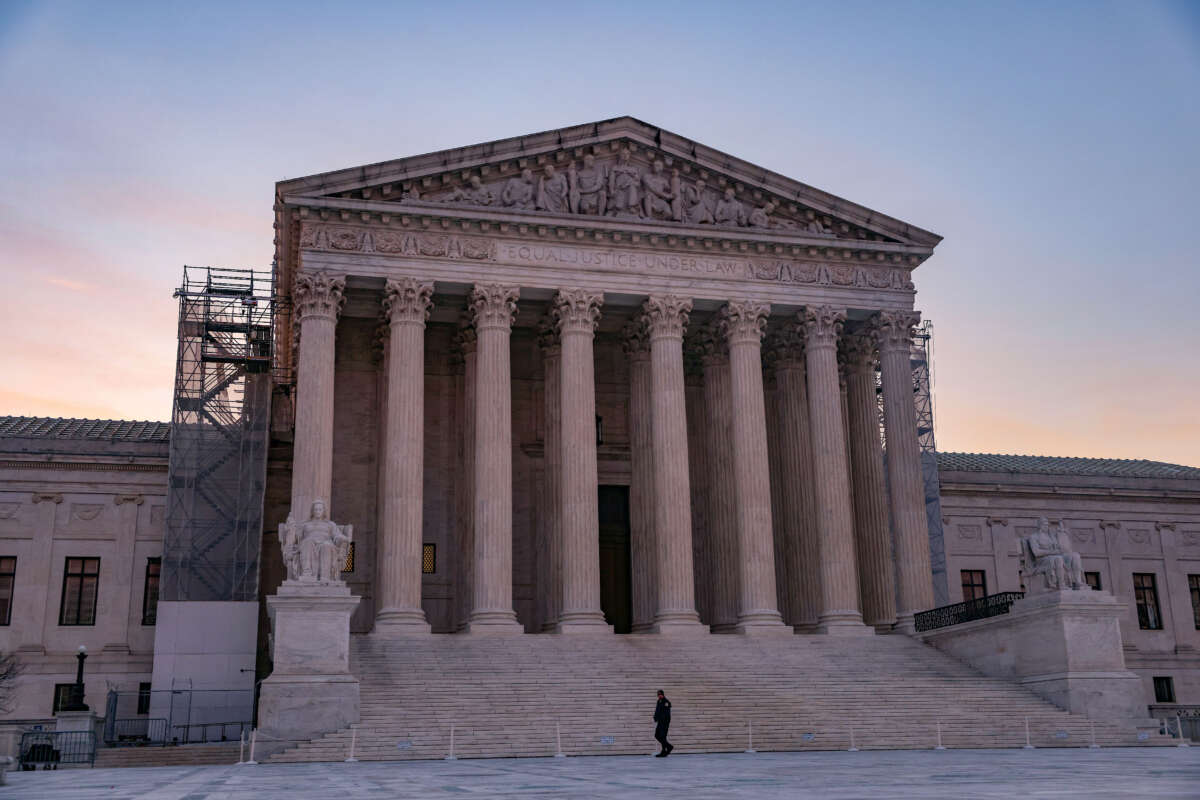During oral arguments on Tuesday, the U.S. Supreme Court seemed unwilling to entertain notions from anti-abortion litigants regarding the safety and approval process of the abortion drug mifepristone, due to those individuals having no legal standing to make such challenges.
In a rare showing of bipartisanship across the bench, both liberal and conservative justices said that doctors and other challengers of the drug — many of whom have pushed unfounded claims of it being unsafe — simply couldn’t make the case that they had legal standing.
Those doctors, their lawyers claimed during arguments, were forced to treat patients who were purportedly adversely affected by mifepristone. But as the justices pointed out, those claims were dubious at best, due to health care providers being allowed to express conscientious objections to the medication and treating such individuals.
“Under federal law, no doctors can be forced against their consciences to perform or assist in an abortion, correct?” Justice Brett Kavanaugh pointed out.
Other justices of the Court, including Justice Elena Kagan, said that, outside of emergency situations — which the anti-abortion side didn’t seem to have any examples of — doctors and other medical personnel are allowed to voice their objections to treating patients.
The questions from various justices on the bench seemed to suggest that they would not render a verdict, likely set for June, that would regulate or even disallow the dispensing of mifepristone. The drug was approved in 2000, and was deregulated in 2016 and 2021, expanding how many weeks into pregnancy a person who wants an abortion can use it and allowing doctors to prescribe it and send it to patients through the mail via telemedicine.
Justices also bristled at the idea that the drug was unsafe. Directing her question toward lawyer Jessica Ellsworth, who represented the pharmaceutical company that produces mifepristone, Justice Ketanji Brown Jackson noted that it wasn’t the place of judges or justices to determine whether or not certain drugs were legal.
“Do you have concerns about judges, parsing medical and scientific studies?” Brown Jackson said to Ellsworth, who indicated that she did have such concerns and that there were other ways for people to object to the availability of purportedly unsafe drugs.
Claims by the anti-abortion side in the argument about the drug’s safety were indeed deeply flawed, and included citing anonymous blog posts on an anti-abortion website as “studies” and relying on “experts” with questionable claims regarding the abortion medication.
Only two justices seemed to indicate that they had qualms about the drug. Justice Samuel Alito focused on claims about the drug’s safety, in spite of those claims having problematic backgrounds, and both he and Justice Clarence Thomas asked questions about the Comstock Act, an 1873 statute that is no longer enforced but that once barred sending abortion medication and birth control through mail.
Still, observers of the case seemed to agree that the Supreme Court wouldn’t rule favorably for the anti-abortion side.
“I think the Supreme Court will side with the FDA and reject the challenge to mifepristone on standing grounds, probably 8–1, with Alito dissenting,” said Slate senior writer Mark Joseph Stern on X.
Stern noted, however, that discussion of the Comstock Act seemed to indicate that conservative justices were providing anti-abortion voices with a blueprint for how to challenge the drug.
Regardless of how the Court rules on this case, “it isn’t over,” Stern added.
Truthout reporter Mike Ludwig agreed, noting that, if the drug is successfully challenged in the future, access to birth control will likely be curtailed in addition to abortion.
A ruling from the Court limiting mifepristone “could invite further legal challenges to other medications that are used by millions of people but remain controversial on the right, including Plan B emergency contraception, birth control pills, vaccines and gender-affirming hormone therapy,” Ludwig said in his reporting on Tuesday.
Join us in defending the truth before it’s too late
The future of independent journalism is uncertain, and the consequences of losing it are too grave to ignore. We have hours left to raise the $12,0000 still needed to ensure Truthout remains safe, strong, and free. Every dollar raised goes directly toward the costs of producing news you can trust.
Please give what you can — because by supporting us with a tax-deductible donation, you’re not just preserving a source of news, you’re helping to safeguard what’s left of our democracy.
